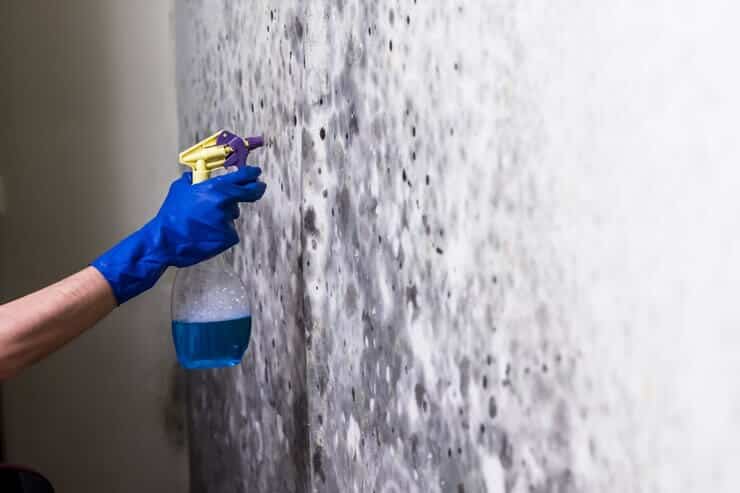Mold belongs to the Fungi Realm, where mushrooms, such as Champignon or Portobello that are used in cooking, also belong. It is a kind of fungus that grows in both open and humid, dark places. There are multiple variations to mold; their spores spread through surfaces and can look like dark, fluffy stains. This type of fungus is, essentially, a microbe and it causes biodegradation of natural materials, which can be unwanted when it becomes food spoilage or damage to property.
With the presence of mold in our living spaces, it all narrows down to one very important question: should I be worried about it? The answer is yes. Mold not only causes biodegradation but it also deteriorates spaces. Most importantly, it can result in disease. The spread of the spores throughout the space must be prevented and the reappearance of it must be also kept under control.
So, how does mold affect health in my family?
Affections from mold go from mild reactions such as allergic sensitivity to the spores, to more compromising reactions like intoxication from the accidental inhalation or ingestion of the spores.Symptoms vary depending on the reaction our bodies have to the spores. They go from fever, asthma, coughing, nasal congestion, headaches, rashes, or a burning sensation in the eyes, nose or lungs. The intensity of these reactions may vary according to each individual’s immune system; people with debilitated immune systems may experience greater, more severe reactions.
In my household, who is a greater risk?
Basically, everyone is. Mold is the opposite of healthy when encountered inside a living space; however, there are people who have a bigger chance to be infected by the spores. It includes:- People who currently suffer from a respiratory weakness; for example, allergies, asthma or even emphysema.
- People with a withered immune system; for example, people with AIDS, organ-transplant patients, or chemotherapy patients.
In the case mold starts growing in my space, what should I do to get rid of it?
Given the fact that mold can be highly toxic, especially in closed spaces, it is of utmost importance to control it or eliminate it completely. These spores are not recommended to be treated by non-professionals; however, there are ways in which you could prevent the spread of the fungus by, very carefully, using cleaning products such as chlorine, disinfectants, or ammonia; making sure to use tools and protection materials (gloves, masks, goggles).Afterwards, a periodic inspection is recommended. Companies as ServXpress offer inspections for free. Typically, a team of professionals will use specific equipment like dehumidifiers, air scrubbers and vacuums; protection like masks, special suits, and gloves. The area to be treated is expected to be covered with plastic sheeting to protect the rest of the space from the spores that might disperse. Simple restoration can also be expected in case the molded area is way too affected. Acting on mold immediately will probably be the smartest move since detecting it on time will mark the difference since its spread is very quick.
By all means, mold has to be avoided. If there happens to be a breakout of spores in a place of your house, follow the advice and stop the spread. Be able to protect your family and yourself from health issues caused by mold.


